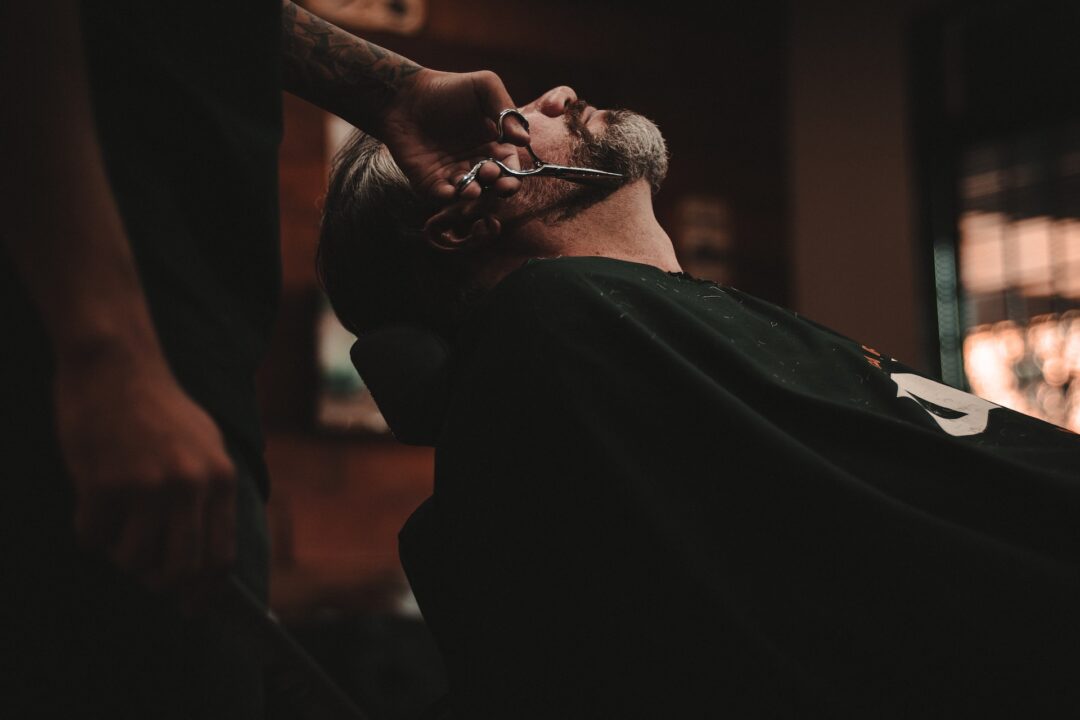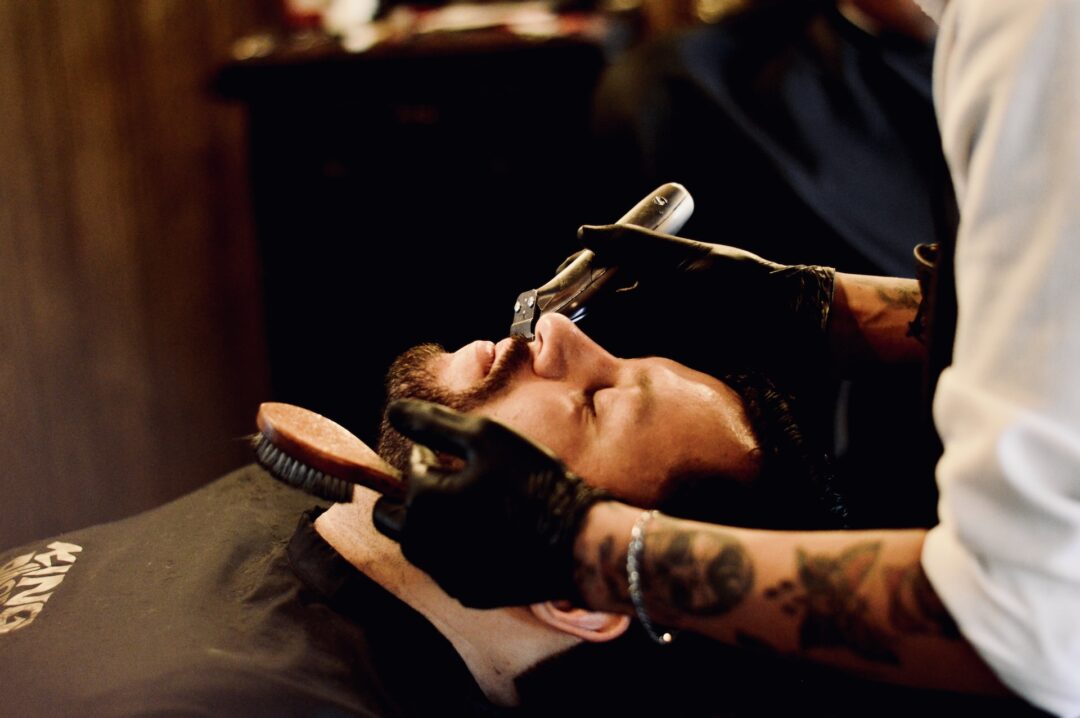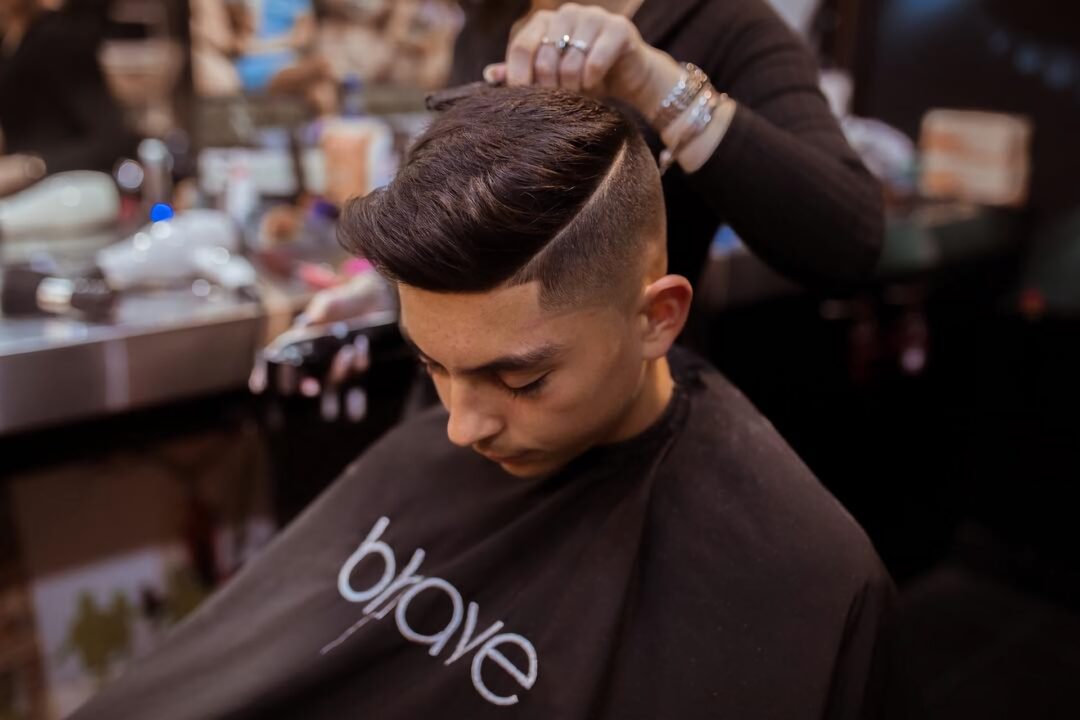Maintaining a healthy and stylish beard is no simple task. One of the most common questions beard enthusiasts often grapple with is: how often should I wash my beard? While the answer isn’t universally applicable, there are general guidelines that can help. Let’s dive deep into this essential beard care question, examine various experiences, and offer actionable tips and schedules to help you achieve beard greatness.
Why Wash Your Beard?
Washing your beard is not merely a matter of personal grooming or aesthetics; it plays a pivotal role in maintaining beard health and overall skin hygiene. Let’s delve deep into the comprehensive benefits of keeping that beard clean.
Hygiene
It’s imperative to understand that the beard, due to its structure and location, becomes a magnet for environmental pollutants, dirt, and microorganisms.
Eliminates Dirt and Bacteria:
- Throughout our daily activities, we’re exposed to a plethora of airborne particles, some of which find a home in the dense growth of a beard;
- Regularly washing one’s beard ensures the removal of these impurities. If left unchecked, accumulated dirt and bacteria can lead to skin irritation, clogged pores, and even infections;
- Maintaining a regular washing routine ensures both the beard and the skin underneath remain clean and devoid of harmful microbes.
When one thinks about hygiene, the immediate association is cleanliness. However, beyond the simple act of cleaning, beard hygiene plays a protective role against potential health hazards.
Softens Your Beard
A clean beard isn’t just healthier; it feels and looks better too. A beard laden with natural oils, sweat, and debris can become coarse, giving it an unruly appearance and a rough texture.
Provides a Softer, More Manageable Beard:
- Sweat, sebum (natural skin oil), and external pollutants can make the beard hair feel harsh and unmanageable;
- Using a suitable beard cleanser not only removes these accumulations but can also reintroduce moisture to the beard hairs, leading to a softer, more comfortable feel;
- A softer beard also means fewer tangles and less breakage, leading to a fuller and more even beard growth.
The relationship between a well-maintained beard and its appearance is undeniable. A clean, soft beard translates to a more polished and refined look, essential for personal and professional settings.
Reduces Itchiness
Underneath the majestic growth of a beard lies the often-neglected skin. Ignoring the skin beneath can lead to various discomforts, with itchiness being a predominant complaint among beard enthusiasts.
Keeps the Skin Underneath the Beard Healthy:
- As the beard grows, it can trap dead skin cells, leading to potential buildup and flakiness. This, combined with accumulated oils, can cause itchiness;
- Washing the beard regularly ensures that the skin beneath is cleansed, minimizing the buildup of oils and dead skin;
- A clean skin surface promotes better breathability, reducing the risk of inflammation and associated itchiness.
While the beard is a sign of pride for many, the health of the skin underneath is fundamental. An itchy beard can be distracting and uncomfortable, emphasizing the need for regular washing.
Enhances Beard Growth: Paving the Way for a Fuller Beard
A well-maintained beard is not just about the present; it’s an investment in future growth.
Removes Dead Skin Cells:
- Dead skin cells can accumulate at the base of beard hairs, potentially hindering new hair growth by blocking hair follicles;
- Regular washing acts as a gentle exfoliation process, removing these cells and allowing for healthier hair follicles;
- With unblocked follicles, the potential for new hair growth is increased, leading to a denser beard over time.
People’s Experiences

Understanding the dynamics of beard washing is as varied as the individuals sporting the beard. From environmental factors to personal skin and hair characteristics, the frequency of washing is tailored to meet specific needs. Below is a detailed exploration of these varied experiences.
Daily Washers
For some, ensuring that the beard is washed every single day is paramount. This category of individuals often finds solace in the regularity of a daily routine.
Reasons for Daily Washing
| Factor | Description |
| High Pollution Exposure | Residents of urban or industrial locales often deal with higher pollution levels. Daily washing helps counteract the effects of these environmental pollutants. |
| Active Lifestyle | Those involved in vigorous daily activities or jobs tend to sweat profusely. Washing the beard daily ensures it remains fresh and free from the accumulated sweat and related odors. |
Daily washers often emphasize the importance of routine. Their commitment to daily washing isn’t just about aesthetics, but also about overall beard and skin health, particularly given their environmental and lifestyle factors.
Alternate Day Washers
Striking a balance between keeping the beard clean and retaining its natural oils is the philosophy of the alternate day washers. Washing every other day can offer numerous advantages.
Benefits and Reasons for Alternate Day Washing
| Benefit | Explanation |
| Avoiding Over-Cleansing | Washing daily can strip the beard of its essential oils. An alternate day routine ensures cleanliness while allowing the beard’s natural oils to replenish. |
| Versatility | Depending on the preceding day’s activities, individuals can decide to wash or let it be, ensuring flexibility in their beard care routine. |
For these individuals, beard care is a responsive endeavor. They tweak their washing routines based on external factors and personal experiences, finding a rhythm that maintains beard health without overburdening it.
Weekly Washers
For some bearded folks, less is more. Those who wash their beards weekly often have specific reasons that underpin their minimalist approach.
Rationale for Weekly Washing
| Reason | Details |
| Extremely Dry Skin or Beard | Frequent washing can exacerbate dryness. Weekly washing ensures the beard retains moisture, avoiding further dryness. |
| Natural Oil Retention | Waiting a week between washes allows for a substantial buildup of natural oils, providing continuous nourishment to the beard. |
Weekly washers prioritize moisture retention and the overall health of their beard and skin. For them, limiting their washing routine is a conscious decision to ensure optimal beard conditions.
Factors Affecting How Often You Should Wash Your Beard
Maintaining a well-groomed beard involves more than just trimming and shaping; proper washing is a crucial aspect of beard care. The frequency at which you should wash your beard depends on several factors, which we will explore in extensive detail below.
Skin Type
Your skin type plays a significant role in determining how often you should wash your beard. It’s essential to understand your skin type to tailor your beard washing routine effectively.
- Oily Skin: If you have naturally oily skin, you may need to wash your beard more frequently. Oily skin tends to produce excess sebum, a natural oil that can accumulate in your beard and lead to greasiness and odor. Regular washing can help keep this in check. However, it’s important to strike a balance – excessive washing can trigger your skin to produce even more oil to compensate, potentially exacerbating the issue;
- Dry Skin: On the other hand, if you have dry skin, you should consider washing your beard less often. Frequent washing can strip away the limited natural oils your skin produces, making your beard dry and brittle. Opt for a more gentle cleansing routine to retain these essential oils and prevent excessive dryness and flakiness.
Lifestyle
Your daily activities and lifestyle choices can also significantly impact how often you should wash your beard. Tailoring your beard washing routine to your lifestyle is essential for maintaining its health and appearance.
- Active Lifestyle: If you lead an active lifestyle, engage in sports, or work in environments where you sweat a lot or are exposed to dirt and dust, you may need to wash your beard more frequently. Sweat and dirt can accumulate in your beard, leading to discomfort, potential skin issues, and an unkempt appearance. In such cases, consider washing your beard after these activities to maintain cleanliness;
- Desk Job: Conversely, if your daily routine involves minimal exposure to sweat and dirt, such as in a desk job, you may not need to wash your beard as often. Overwashing in this case can strip away natural oils unnecessarily, leading to dryness and potential irritation. A balanced approach is to wash as needed to keep your beard fresh but avoid overdoing it.
Beard Length
The length of your beard is another critical factor that determines your washing frequency. Beards come in various lengths, from short and neatly trimmed to long and luxurious. Each length presents its own set of challenges when it comes to maintenance.
- Short Beard: Shorter beards are generally easier to keep clean and maintain. However, they might require more frequent washing to prevent the buildup of oils and debris. The simplicity of cleaning a short beard allows for more flexibility in your washing routine;
- Long Beard: Long beards, while impressive in their appearance, can trap more dirt, particles, and food remnants due to their length. This may necessitate more frequent washing to keep your beard looking and smelling fresh. However, it’s crucial to strike a delicate balance, as long beards also heavily rely on natural oils for healthy growth and appearance. Overwashing can lead to dryness, split ends, and a lackluster beard.
In summary, determining how often you should wash your beard is a personalized decision that depends on your unique combination of skin type, lifestyle, and beard length. Regular washing is essential to maintain cleanliness and prevent issues like itchiness and odor, but it’s equally important not to overdo it, as excessive washing can lead to dryness and irritation.
To help you establish the ideal washing routine for your beard, you can refer to the following table as a general guideline. However, keep in mind that these recommendations are not set in stone and should be adjusted based on your personal preferences and how your beard responds to different washing frequencies.
| Skin Type | Lifestyle | Beard Length | Recommended Washing Frequency |
| Oily | Active | Short | Every other day to daily |
| Oily | Active | Long | Every other day to daily |
| Oily | Desk Job | Short | 2-3 times a week |
| Oily | Desk Job | Long | 1-2 times a week |
| Dry | Active | Short | 1-2 times a week |
| Dry | Active | Long | 1-2 times a week |
| Dry | Desk Job | Short | 1-2 times a week |
| Dry | Desk Job | Long | 1 time a week |
Remember that achieving the perfect beard washing routine may require some experimentation and adjustments along the way. Regularly assessing your beard’s condition and adapting your routine accordingly will help you maintain a healthy, clean, and well-groomed beard that reflects your individual style and preferences.
Tips for Washing Your Beard

Now that we’ve addressed how often you should wash your beard based on various factors, it’s essential to understand the best practices for washing your beard. Here are some expert tips to help you get the most out of your beard washing routine:
Use Beard Shampoo
When it comes to cleaning your beard, using the right products is crucial. Unlike the hair on your head, facial hair is different in texture and requires a milder shampoo specially formulated for beards. Regular shampoos can be harsh and may strip your beard of its natural oils, leading to dryness and irritation. Opt for a high-quality beard shampoo that is designed to cleanse without over-drying.
Warm Water
Before applying shampoo, it’s a good practice to use lukewarm water to wet your beard thoroughly. This serves two important purposes:
- Opens Up Pores: Warm water helps to open up the pores on your skin beneath the beard. This makes it easier for the shampoo to penetrate and cleanse both the hair and the skin, ensuring a more thorough cleanse;
- Softens the Hair: Warm water also softens the beard hair, making it more pliable and receptive to cleansing. This is especially beneficial for longer beards, as it helps prevent tangling during the washing process.
Gentle Massage
While applying beard shampoo, it’s essential to be gentle. Avoid being too rough or vigorous when massaging the shampoo into your beard. Instead, use a gentle, circular motion with your fingertips. This approach accomplishes a few things:
- Effective Cleansing: A gentle massage helps distribute the shampoo evenly throughout your beard, ensuring that all areas are properly cleaned;
- Prevents Hair Damage: Vigorous scrubbing can damage the hair and irritate the skin underneath. A gentle massage cleanses without causing unnecessary harm.
Rinse Well
After allowing the shampoo to sit for a minute or two (as per the product’s instructions), it’s crucial to rinse your beard thoroughly. Make sure that all traces of shampoo are washed away. Residue left in your beard can lead to itchiness, dryness, and a dull appearance.
Pat Dry
Once you’ve completed the washing process, it’s time to dry your beard. However, the way you dry it matters. Instead of vigorously rubbing your beard with a towel, which can lead to friction and potential damage, opt for a gentler approach:
- Use a Soft Towel: Select a soft, clean towel to pat your beard dry. Microfiber towels are an excellent choice as they are gentle on the hair and absorb moisture effectively;
- Pat, Don’t Rub: Gently pat your beard dry rather than rubbing it vigorously. Patting helps remove excess water without causing friction, which can lead to frizz and split ends.
Sample Beard Washing Schedule
Creating a personalized beard washing schedule is essential for maintaining a clean and healthy beard. Below is a sample schedule based on the general guidelines we’ve discussed earlier. However, keep in mind that the best schedule for you should be tailored to your specific skin type, lifestyle, and beard length.
| Day of the Week | Beard Washing Routine |
| Monday | Wash with beard shampoo |
| Tuesday | Rinse with water |
| Wednesday | Wash with beard shampoo |
| Thursday | Rinse with water |
| Friday | Wash with beard shampoo |
| Saturday | No wash or just rinse |
| Sunday | Deep cleanse with beard shampoo |
Notes on the Sample Schedule:
- Monday, Wednesday, Friday: These are the days designated for using beard shampoo. This frequent washing helps keep your beard clean, especially if you have an oily skin type or an active lifestyle that exposes your beard to sweat and dirt;
- Tuesday, Thursday: On these days, you’re simply rinsing your beard with water. This is a gentle way to remove any light debris or dust without using shampoo, which can be drying if used too frequently. It’s particularly suitable for those with drier skin or during periods of less activity;
- Saturday: This day is designated for a break from using shampoo. You can either skip washing altogether or simply rinse your beard with water. This provides a brief respite for your beard’s natural oils to balance;
- Sunday: To cap off the week, Sunday is designated as a deep cleanse day. Use beard shampoo to thoroughly clean your beard and remove any accumulated residue or buildup.
Additionally, pay attention to how your beard responds to this schedule. If you notice dryness, itchiness, or excessive oiliness, don’t hesitate to modify your routine accordingly. Experimenting with different routines and products can help you find the perfect balance for your beard care needs, ensuring that your beard remains clean, comfortable, and well-groomed.
The Role of Diet and Hydration in Beard Health

While the question of how often you should wash your beard is essential in maintaining its cleanliness and appearance, it’s equally crucial to recognize that the health, growth, and overall quality of your beard are influenced by factors beyond your washing routine. Diet and hydration play significant roles in the condition and vitality of your facial hair. In this comprehensive exploration, we will delve into the intricate relationship between your diet, hydration, and beard health.
Diet
Your dietary choices have a profound impact on the health and appearance of your beard. The following dietary components are vital for promoting optimal beard growth and maintaining its luster:
- Protein: The structural foundation of your beard hair is a protein called keratin. Ensuring an adequate intake of protein in your diet is essential for stimulating beard growth and preserving its overall health. Protein-rich foods such as lean meats, poultry, fish, eggs, dairy products, and plant-based sources like beans and nuts provide the necessary amino acids for keratin production;
- Omega-3 Fatty Acids: Omega-3 fatty acids are renowned for their ability to promote hair health, including beard hair. These essential fats contribute to a shinier, more robust beard. Incorporate omega-3-rich foods into your diet, such as fatty fish (salmon, mackerel), flaxseeds, chia seeds, and walnuts, to support your beard’s vibrancy;
- Vitamins: Specific vitamins are critical for beard growth and texture, with biotin (vitamin B7) taking center stage. Biotin aids in the synthesis of keratin, leading to increased beard thickness and strength. You can find biotin in various foods, including eggs, nuts, and whole grains;
- Minerals: Minerals such as zinc and iron are essential for hair health. Zinc, in particular, plays a pivotal role in hair growth and repair. Oysters, beef, and fortified cereals are excellent sources of zinc. Iron, found in red meat, poultry, and beans, is vital for maintaining healthy hair follicles.
Hydration
Proper hydration is foundational for the well-being of your skin and beard. Here’s how staying well-hydrated contributes to the health and comfort of your beard:
- Skin Health: The skin beneath your beard requires adequate hydration to remain healthy. Dehydrated skin can lead to itchiness, dryness, and flakiness, all of which can adversely affect your beard. Maintaining an adequate water intake helps balance the moisture levels in your skin, reducing the likelihood of these issues;
- Beard Hydration: Beyond skin health, water is essential for the hydration of your beard hair itself. Well-hydrated beard hair is less prone to breakage and appears more vibrant and well-groomed. Drinking sufficient water ensures that your hair follicles receive the necessary nourishment from the inside, leading to healthier and more manageable beard hair.
Creating a Beard-Nurturing Diet
To harness the full potential of your diet and hydration for optimal beard health, consider the following tips:
- Diversify Your Diet: Incorporate a variety of nutrient-rich foods into your meals to ensure you receive a wide range of vitamins and minerals that benefit your beard;
- Stay Consistently Hydrated: Make it a habit to drink an adequate amount of water throughout the day. Aim for at least eight glasses (64 ounces) of water daily to maintain proper hydration;
- Supplements: If your diet lacks certain essential nutrients, consider consulting a healthcare professional about adding supplements to your regimen. Biotin supplements, for example, can be beneficial if your diet is deficient in this vital B vitamin;
- Avoid Excess Sugar and Processed Foods: High sugar and processed foods can contribute to inflammation, which may negatively impact your skin and beard health. Opt for whole, unprocessed foods whenever possible.
Conclusion
While the core question remains – how often should I wash my beard – the answer truly depends on individual needs. By understanding the factors that impact beard washing and paying attention to your beard’s unique needs, you can strike the perfect balance for a clean, healthy, and splendid beard!
FAQs
How often should I wash my beard if it’s itchy?
Itching might be a sign of dirt or dry skin. Consider washing it every other day and ensuring you moisturize with beard oil afterward.
Can I use regular shampoo on my beard?
It’s recommended to use beard-specific shampoos as they are formulated to be gentler and preserve the beard’s natural oils.
How often should I condition my beard?
Conditioning 2-3 times a week can be beneficial, especially for longer beards that are prone to tangling.
My beard feels dry after washing, what should I do?
Use a beard oil or balm after washing to moisturize and keep it soft.



